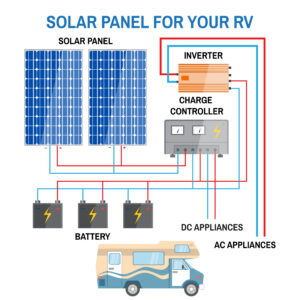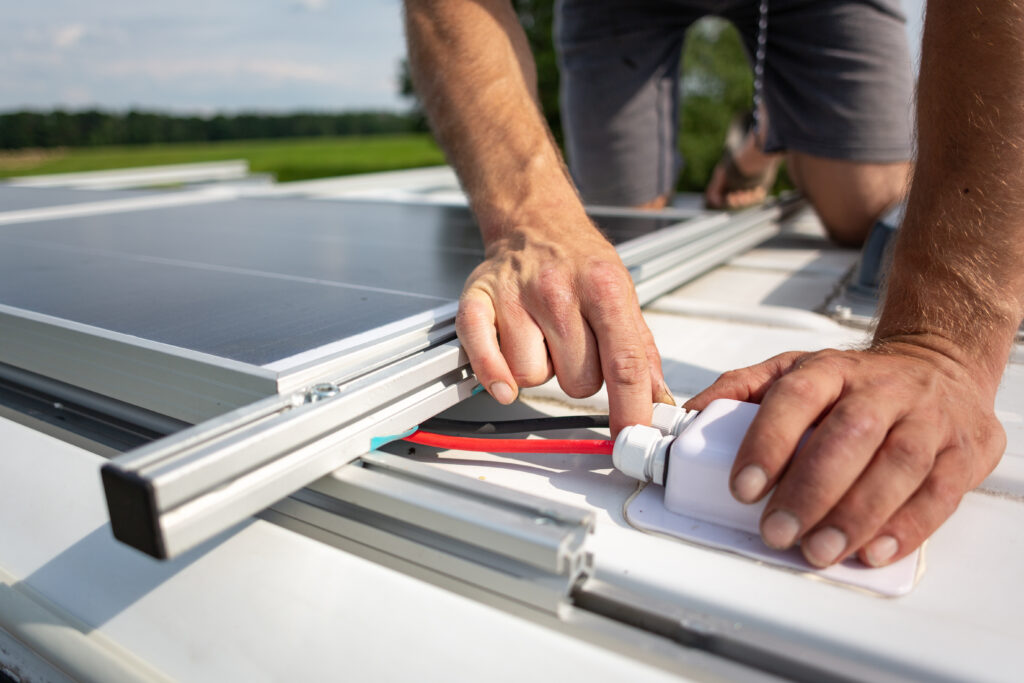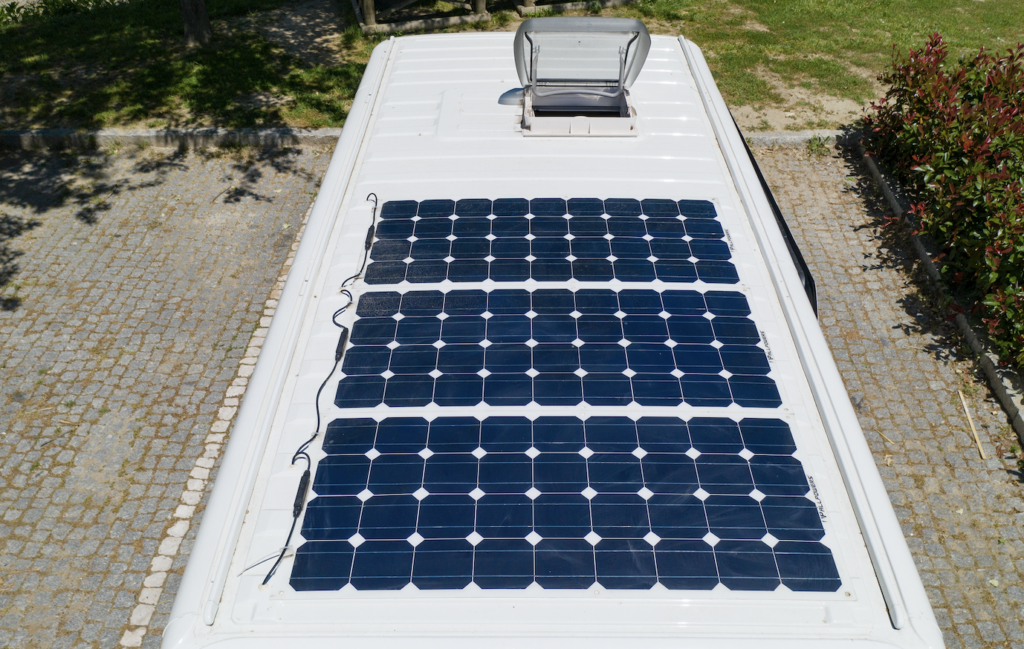Filling up a 100-gallon RV tank is expensive. But the price of fun can be significantly decreased by switching from diesel to solar.
Benefits to solar on an RV
RVs running partially on solar power have the potential to disconnect themselves completely from civilization. They could run their engine and generator on solar, rather than having to rely on gas.
The up-front cost of an RV-installed solar system includes:
- About 300 watts of solar panels. This shouldn’t cost more than $400.
- An inverter. Inverters convert solar energy, which is DC, into AC, which is more usable. They cost about $100.
- An alternator. While there is one alternator already charging the battery of your RV, a second alternator is required to charge the solar battery. These also cost about $100.
- A lithium battery. A battery storage of 5 kWh is usually plenty. Lithium batteries tend to cost $500/kWh, so this would cost a total of $2,500.
If this seems like too much of a commitment, another option is to use portable solar panels, and set them up outside your RV once you get to your campsite. Using portable solar panels over installed includes much less of an up-front cost with similarly proportioned benefits.
A portable solar panel system requires:
- At least 100 watts of solar panels, which would cost $100.
- An inverter, which still costs about $100.
- An alternator, again, at $100.
- Maybe a battery. The cost depends on the size of the battery, but you can find some with 300Wh (or 25% what your fridge uses in a day) that cost less than $300. A battery this size couldn’t power your engine, but it would power smaller appliances throughout the night.
(Be sure to consult with an electrical engineer or solar installation company before trying to set this up on your own.)
While you don’t necessarily need a battery, it’s always useful. But as this is the most expensive part of the system, feel free to cut it out until you’re sure it’s worth it. Not buying a battery means that you can only use solar power while the sun is out, so you’d have to cook and shower in the daylight, and you couldn’t use solar power instead of diesel while driving.
Costs involved in RV travel
RV road trip expenses include gas mileage, running the generator, paying for campsites, and paying for food and entertainment.
Campers get a gas mileage of only 10 miles/gallon. They typically run on diesel, which costs about $4/mile. For a 1,000 mile road trip, at 50 miles a day and about $3.00/gallon, gasoline costs $15/day, or $300 total. A solar system with a battery would eliminate this expense.
Running basic electrical needs in an RV, such as air conditioning, uses an average of 1 gallon per 3 hours. Assuming you’re in your RV 12 hours a day, cooking, showering, and running the air conditioner, this costs $12.00/day, or $240 total. A solar system would also eliminate this expense.
Camping expenses are about $15/night, or $300 total. Visiting national parks and eating out can increase the expense by $500.
These numbers added together give a total RV road trip cost of $1,300.
Cost benefits of solar over diesel
For an initial cost of installed solar panels of $3,100, you could save $540 on each of your 1,000-mile, 20-day RV road trips. After only 6 of these trips, you’ll be earning your money back.
For an initial cost of portable solar panels, even without a battery, this system would save you $240 per 1,000-mile, 20-day trip.
The panels, inverters, alternators, and batteries can sometimes come as sets, which also might decrease your overall cost.
If you’re looking for a way to spend days at a time away from civilization on your road trips, using a solar panel system and storing produced energy in a battery is the way to go. Not only does it allow you to travel without gas for thousands of miles, but it also saves money in the long run (and helps the environment).
References
https://www.foxnews.com/travel/rv-camping-trips-what-you-absolutely-need-to-know
https://rvshare.com/rv/the-ultimate-rv-trips-guide
https://www.rvia.org/business-indicators
https://axleaddict.com/rvs/Smart-RV-Travel-Forecasting-Trip-Costs
https://www.campingrvbc.com/how/rv-purchasing/affordability-of-rving/
https://www.thefitrv.com/rv-tips/how-much-solar-do-i-need-on-my-rv/



